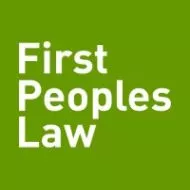What it's about
A New Brunswick Court confirmed that Aboriginal title can include privately owned land, and that the Crown could be required to use its expropriation powers to return private lands to Indigenous groups.
What happened
In 2021, the Wolastoqey Nations filed a claim for a declaration of Aboriginal title to lands covering more than half of New Brunswick, including lands held privately by commercial forestry companies.
The Province of New Brunswick and the companies asked the Court to strike out the portions of the claim for Aboriginal title over privately held lands.
The Court rejected the Province's argument that Aboriginal title cannot exist over lands which are subject to fee simple interests.
The Court held that a claim for Aboriginal title can only be brought against the federal and provincial Crown, not third parties. The Court struck out the portions of the claim which sought the return of privately held lands from the companies, and removed the companies from the claim. However, the Court decided that in the future the Crown might be directed to use its expropriation powers to return Aboriginal title lands to the Wolastoqey.
Why it's important
The relationship between Aboriginal title and privately held lands has been a critical, unresolved issue for Indigenous peoples since the Supreme Court of Canada's 2014 decision in Tsilhqot'in Nation.
The Court's decision provides much-needed clarity by expressly confirming that Aboriginal title continues to exist on lands which were historically used and occupied by Indigenous peoples, regardless of whether those lands are now subject to fee simple interests.
The decision also confirms that Aboriginal title is, and has always been, a right to the land itself. Where the Crown fails to recognize and respect that right, remedies exist under Canadian law, including the possibility of the return of lands to the title-holding Nation.
The content of this article is intended to provide a general guide to the subject matter. Specialist advice should be sought about your specific circumstances.


